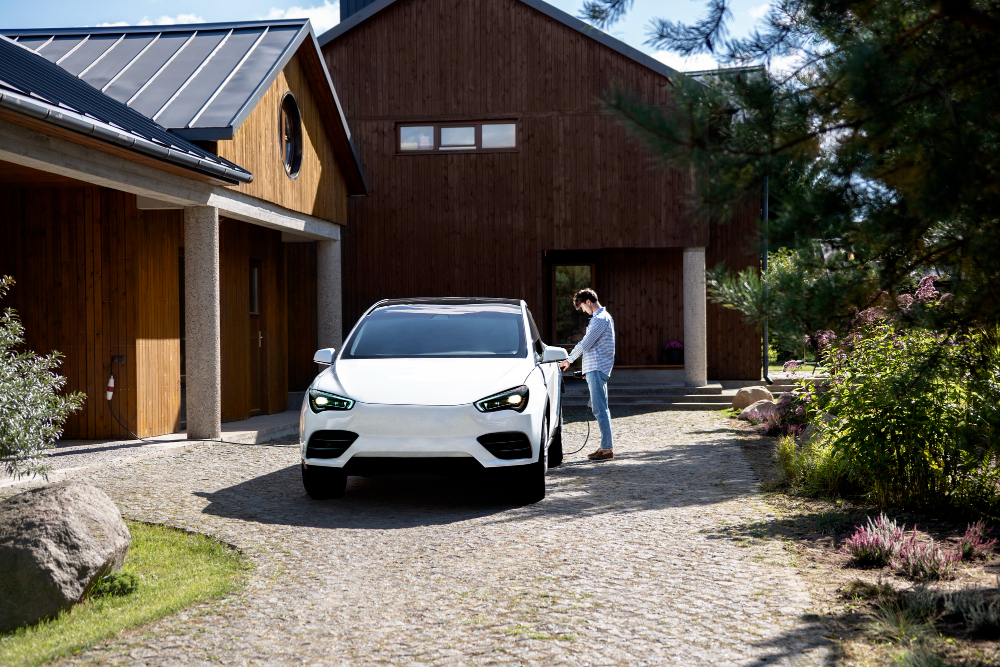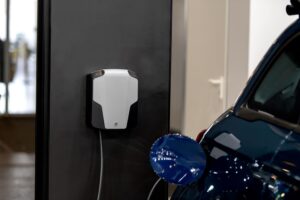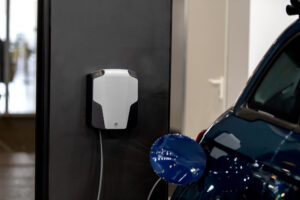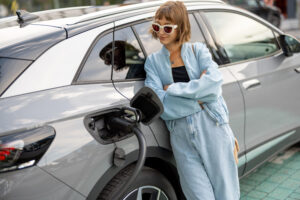Electric vehicles have become an increasingly popular way to reduce our impact on the planet. And what’s even better is that charging electric cars at home with solar panels is very possible now.
Using solar power systems to capture the sun’s energy is a planet-friendly choice instead of using fossil fuels. Plus, it helps you save money over time.
We will explore what it takes to install an EV charging station for your electric car with solar energy and how much benefit you could see from making such an investment.
Read on to learn more about powering up your ride with some help from Mother Nature!
What is Solar Energy?

Solar energy, which is the bright light and warmth from the sun, can be captured and changed into electricity using special solar panels.
These panels, usually put on roofs or in open spaces, have cells that take in sunlight and make a kind of electric current called direct current (DC). This gets turned into a different type of electric current called alternating current (AC), which can be used in homes.
The solar power system is good for the environment and a lasting method to run your house and even charge your electric car.
How Many Solar Panels Do I Need to Support EV Charging at Home?
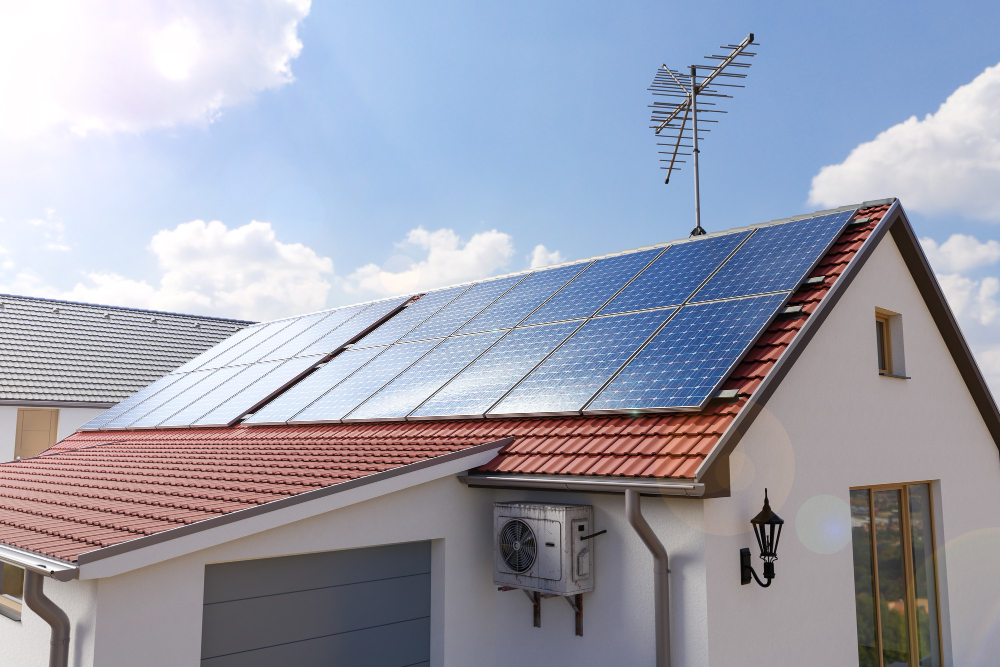
The number of solar panels you need to charge your EV depends on several factors, including the energy consumption of your electric car and your daily household energy usage. On average, a single solar panel generates around 250 to 400 watts of renewable energy.
To estimate how many panels you need to charge an electric car at home, calculate your car’s daily charging needs and consider your location’s sunlight availability. If you’re unsure how to charge an electric car at home, consult a certified professional for advice.
Charging Electric Cars at Home with Solar Panels
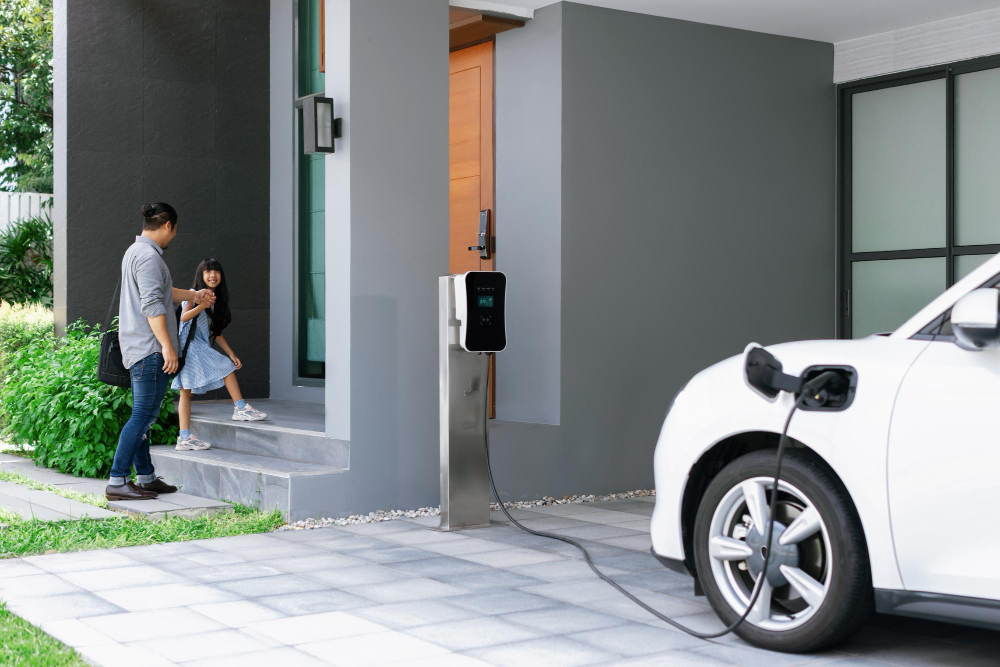
Charging your EV at home with solar panels is a straightforward process. Here are the steps to charge your EV at home using a solar panel:
- Solar Panel Installation: Have solar panels installed on your rooftop or property.
- Solar Inverter Setup: Connect the solar panels to an inverter to convert the generated DC into usable AC electricity.
- Charging Equipment: Install a Level 2 EV charger at home for faster and more efficient charging.
- Connect to EV: Plug your electric car into the charging station and let it charge using solar-generated electricity.
How Long Does it Take to Charge an EV Using Solar?
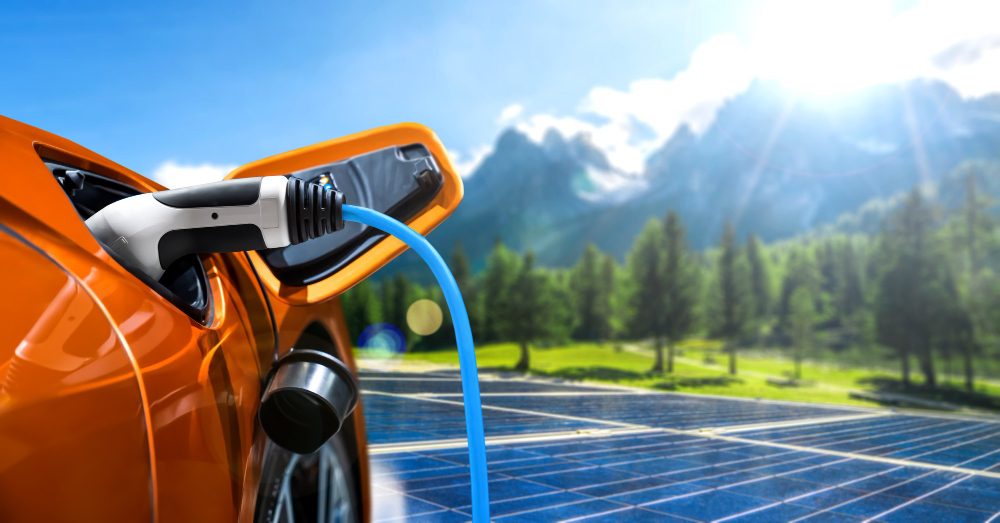
Charging time varies based on factors such as your car’s battery capacity, the amount of sunlight available, and the efficiency of your charging equipment. On average, charging an electric vehicle using solar power might take anywhere from a few hours to a full day. To ensure quicker charging, consider installing a higher-capacity solar panel system and a powerful EV charger.
Frequently Asked Questions
What are the three levels of EV charging?
There are three levels of EV charging that are associated with different charging speeds.
- Level 1 Charging: This involves using a standard household outlet (120V) and is the slowest charging option.
- Level 2 Charging: Requires a 240V charging station and is faster than Level 1, suitable for overnight charging.
- Level 3 Charging (DC Fast Charging): Found in public charging stations, this provides rapid charging for quick top-ups.
Can I use my solar battery to charge an electric car at night?
Yes, if you have a solar battery storage system, you can store excess solar energy generated during the day and use it to charge your electric car at night. This strategy optimizes your utilization of solar power, ensuring efficient energy utilization even during periods of diminished sunlight.
Do I need to have a smart EV charging station if I want to charge my EV with solar energy?
While you don’t have to, having a smart EV charging station brings advantages like setting up charging when the sun’s power is strongest, watching how much energy you use, and making charging your EV with solar power work even better.
Conclusion
Using renewable energy sources, such as solar power, to charge electric vehicles from the comfort of your home is a practical and cost-effective alternative. Installing solar panels will allow you to take advantage of the sun’s energy and shrink your carbon footprint without leaving your house.
As technology advances, more efficient systems become available, so charging electric cars at home with solar panels is a promising prospect.
If you are interested in second-hand electric vehicles for sale in Benalla or Euroa, then this method would be an ideal choice.

